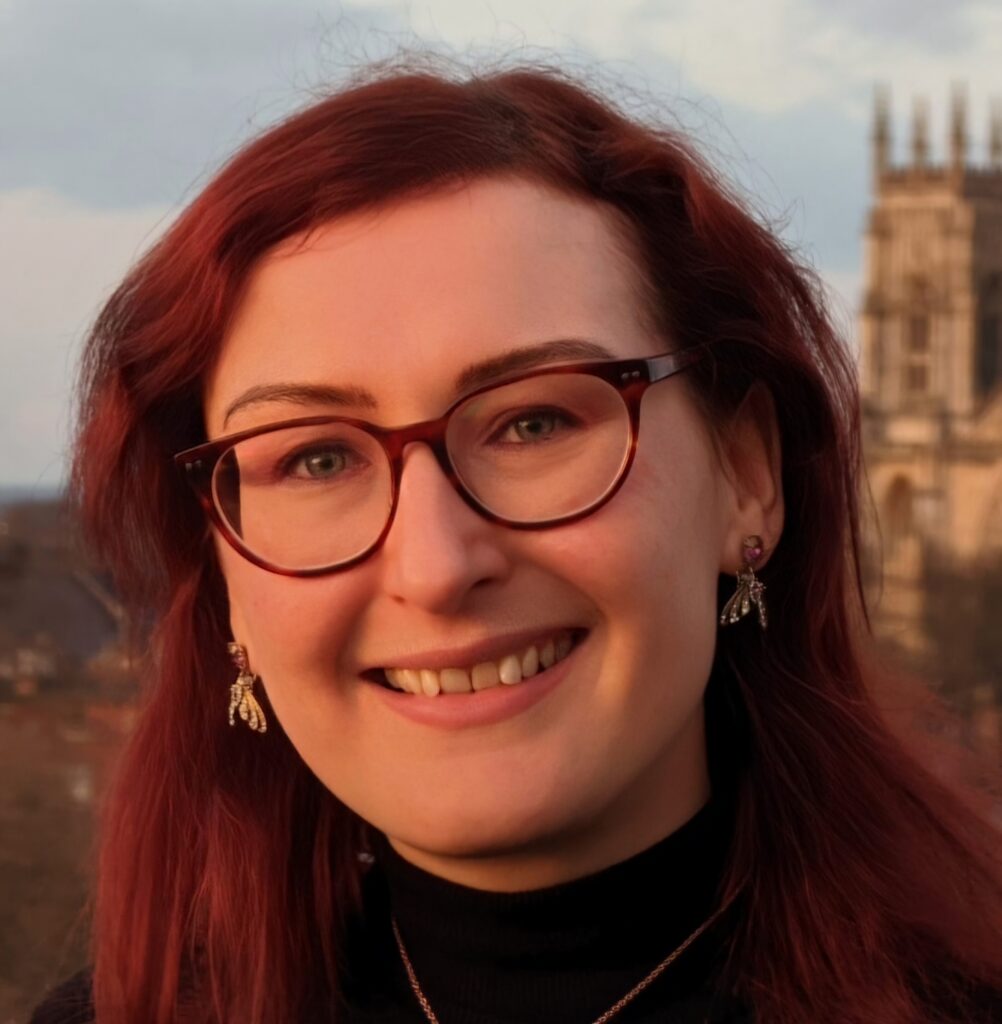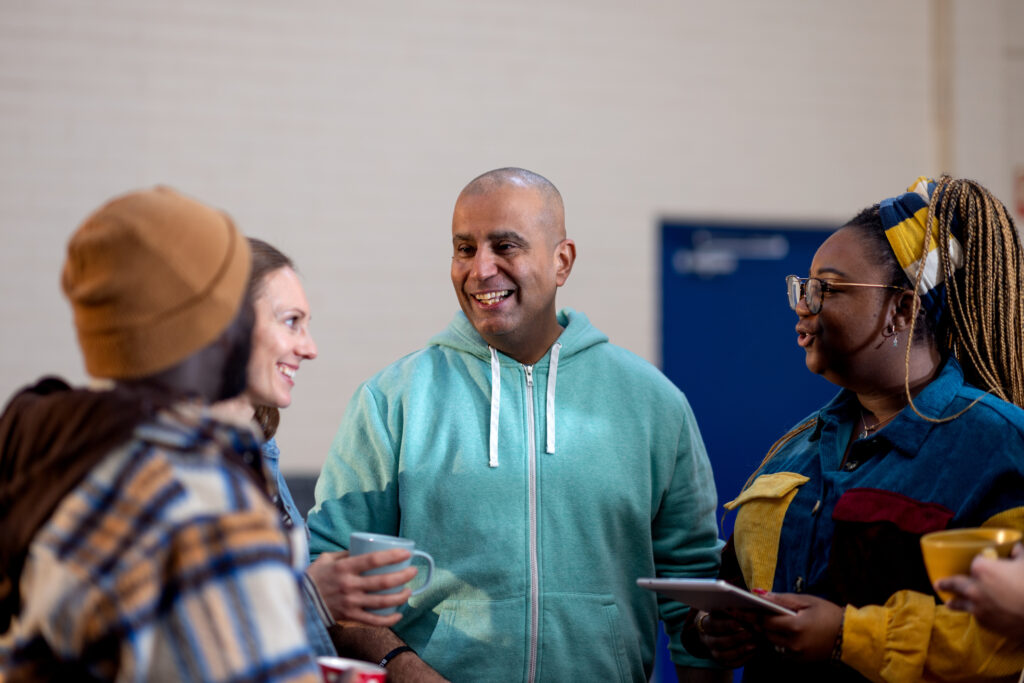Trust is hard won and easily lost. It comes through good relationships.
But building relationships takes time and once built, they are precious and fragile.
They involve give and take on both sides and it’s a slow burn.
Perhaps these aren’t concepts people readily associate with research, but they are absolutely the cornerstones for achieving research excellence.
They are what researchers in Leeds are focusing on as they work with diverse communities to forge a new approach. One which responds to what those people really need.
With a new remit from funding body the National Institute for Health and Care Research (NIHR) that researchers strengthen local community ‘participation’, colleagues in Leeds knew they must go deeper than their long-standing public engagement practices.
And while the phrase ‘underserved communities’ had typically referred to those who had difficulty accessing local (health) services, it now also meant underserved by being excluded from research. How can you be confident you are improving health and care effectively for people when those very people’s voices aren’t being heard, nor are they involved in designing the solutions?
Forging this new approach meant being curious, being ready to challenge current practice and revisit how, and how not, to engage meaningfully with people from diverse backgrounds so you can properly include them.
It meant investing much more in the resource and time needed to get this right.
The team at NIHR Leeds Biomedical Research Centre (BRC) was ready and willing to do just that.
“The very people we most want to hear from are often those who aren’t aware of research opportunities, because they’re not offered to them nor do they reflect their needs,” said Amy Rebane, the BRC’s Patient and Public Involvement, Engagement and Participation Lead.
“And those people often experience the poorest health exacerbated by difficulties in accessing health services that meet their needs. To start to break down those barriers, we needed to recruit people to our team who had lots of curiosity and an easy rapport to build relationships and to garner people’s trust.”
Since late 2022, the BRC has matched this ambition with investment. It has expanded its public engagement team creating five new roles to focus on enriching this new approach, placing one of them within the Healthwatch Leeds team. From there, they benefit from Healthwatch’s strong and trusted links with a diverse range of people across the city’s community and voluntary sectors.
The team is coupling this with insights from Leeds’ Health and Care Partnership about what people with specific health challenges have said really matters to them.
Amy says this is already bearing fruit.
“With the backing of our senior leadership team, we are taking the time needed to do this properly without being under pressure.
“We tie in basic, practical considerations. We meet people where they are, in their communities. We make sure we have a specific focus that we explain clearly so people understand exactly what we’re interested in, we meet people at times and on days to suit them, we pay them for it, we provide lunch, and so on.
“Instead of taking the route of recruiting research participants from health clinics, this bespoke approach is attracting and including a much more diverse range of people. We are learning from people who we haven’t previously engaged with, especially those who experience multiple barriers due to their personal characteristics.
“This is helping us shaping the research which will most benefit them. And that’s our aim: to provide new evidence to help decision-makers in health and care best serve those most in need.”
That aim is central to Leeds shared ambition: to prioritise improving health and care for those most in need. Research must learn directly from them, about what they need.
Local people lead a citywide approach for taking part in research
In such a large, research-active city, it’s a busy arena and those very people can easily be overwhelmed or confused by the different research requests and approaches they experience. That potentially creates further barriers to them taking part.
Earlier this year, Leeds’ BRC team became the first among the country’s 20 BRCs to be involved in a citywide approach to find solutions to some of these challenges through working with the Leeds People’s Voices Partnership (PVP).
The Leeds People’s Voices Partnership (PVP) brings together experts in public involvement from across health and care organisations in Leeds to work together as one team.
As a member of the PVP, the BRC Community Patient and Public Involvement, Engagement and Participation (PPIEP) Coordinator developed a set of principles that are inclusive and meaningful for working with communities. The PVP agreed these principles, which provide the basis for a consistent, coordinated approach all researchers are expected to use when working with communities. They are as follows:
- Build on what we know.
- Hear the voice of inequalities.
- Recognise and reward people for their contributions.
- Feed back to people who have been involved.
- Work with and alongside community organisations in Leeds and in partnership with the PVP.
- Understand and ask people what is important to them.
- Consider the 3Cs (communication, coordination, and compassion) when working with communities.
“We are hoping that these principles lead to a more coordinated and inclusive approach when working with diverse groups and communities. These principles also highlight the value of working in partnership with organisations that are linked into and embedded within communities,” said Sharanjit Boughan, Leeds’ BRC Community PPIEP Coordinator.
“We will continue to build on and develop the principles further, so researchers understand this as the most effective approach to engaging with communities.”
Click here to return to the spotlight series, in which we explore groundbreaking activities which set new, exemplary standards in making research everyone’s business for everyone’s benefit, especially for those most in need.
Header image credit: iStock.com/monkeybusinessimages
Sideline image (1) credit: iStock.com/Oleg Elkov
Sideline image (2) credit: iStock.com/SolStock



